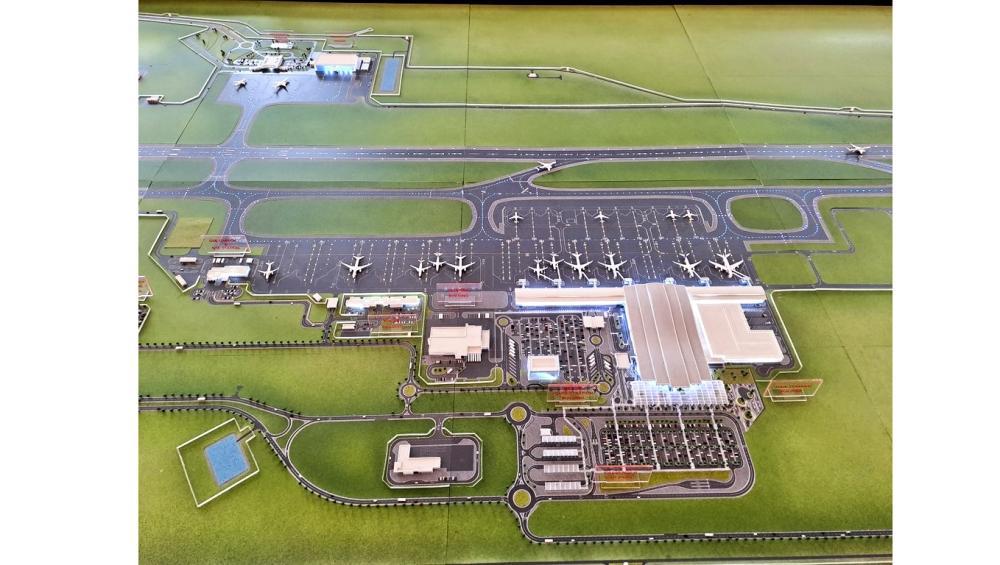Africa-Press – Rwanda. The Minister of Finance and Economic Planning, Yusuf Murangwa, presented the final national budget to Parliament on Thursday, June 12, outlining how the government will allocate Rwf7,032.5 billion in the fiscal year 2025/26.
The approved finance bill increased by 21 percent compared to the Rwf5,816.4 billion budget of the previous year.
The minister indicated that the government expenditure is aligned to support investments towards achieving the goals of the country’s second National Strategy for Transformation (NST2).
He said: “We are also working to manage public finances carefully to reduce our budget deficit, stabilize debt, and make our economy more resilient to external shocks. At the same time, we want to improve household incomes and spending.”
The Minister of Finance and Economic Planning, Yusuf Murangwa, presents the final national budget to Parliament on Thursday, June 12.
Below are six major highlights from the new budget:
Domestic revenue to increase
Domestic revenues will amount to Rwf4,105.2 billion. This comprises Rwf3,628.0 billion from tax revenue and Rwf477.2 billion from other revenue collection.
External grants are estimated at Rwf585.2 billion while external loans are projected at Rwf2,151.9 billion.
Total expenditure for fiscal year 2025/26 is equally projected at Rwf7,032.5 billion. This includes recurrent spending of Rwf4,352.9 billion, capital spending of Rwf2,679.5 billion and this includes equity, investment fund shares and policy lending.
$600 million for new airport construction
About 70 percent of the more than Rwf1.2 trillion increase in the budget is allocated to fast-track the construction of the new international airport in Bugesera District.
This is a total of $600 million (approx. Rwf850 billion).
There will also be investments in the expansion of national carrier, RwandAir, among major projects the government aims to carry out in the next fiscal year.
Sectors in economic transformation get bigger share
The economic transformation pillar of NST2 will get a bigger share of the budget allocation of Rwf4.4 trillion, representing 62.8 percent.
It will focus on boosting agriculture activity, consuming about Rwf222.3 billion, transport sector will receive Rwf251.8 billion, private sector development and youth employment will receive Rwf132.1 billion, urbanization and rural settlement Rwf74.9 billion, and climate resilience Rwf131.4 billion, among others.
Rwf1.5 trillion injected in social transformation
Improved healthcare and education, social protection programs, sustainable nutrition services, family and gender initiatives, and strengthening disaster management programs will receive about Rwf1.5 trillion, representing 21.7 percent of the budget allocation.
The education sector will get a chunk of Rwf813.1 billion, health Rwf462.7 billion, and social protection Rwf92.8 billion.
Governance gets Rwf1.08 trillion
This pillar will get 15.5 percent of the budget allocation, and it will focus on quality service delivery, good governance, public finance management, justice system strengthening, peace and security, crime prevention, and economic diplomacy.
Under the justice sector, the government seeks to enhance the capacity of local mediators and legal aid offices, and utilize contract-based judges to expedite the backlog in courts. It will also promote TVET programs in prisons and halfway reintegration centers.
Tax incentives on electric and hybrid vehicles extended
The new fiscal year also features different tax policy changes in line with the EAC common tariff, including extending the import duty rate of zero on electric and hybrid vehicles, as well as electric motorcycles. However, from recent tax reforms, hybrid vehicles are subject to an 18 per cent VAT, ending the exemption that had been in place since 2021.
In efforts to continue promoting the tourism sector, the incentives on cars above $60,000 will be extended to increase its stock.
Imported cars will pay Common External Tariff import duty applicable of 25 percent and all relevant taxes up to the Cost, Insurance and Freight (CIF) value of $60,000. Anything above $60,000 will not.
For More News And Analysis About Rwanda Follow Africa-Press






